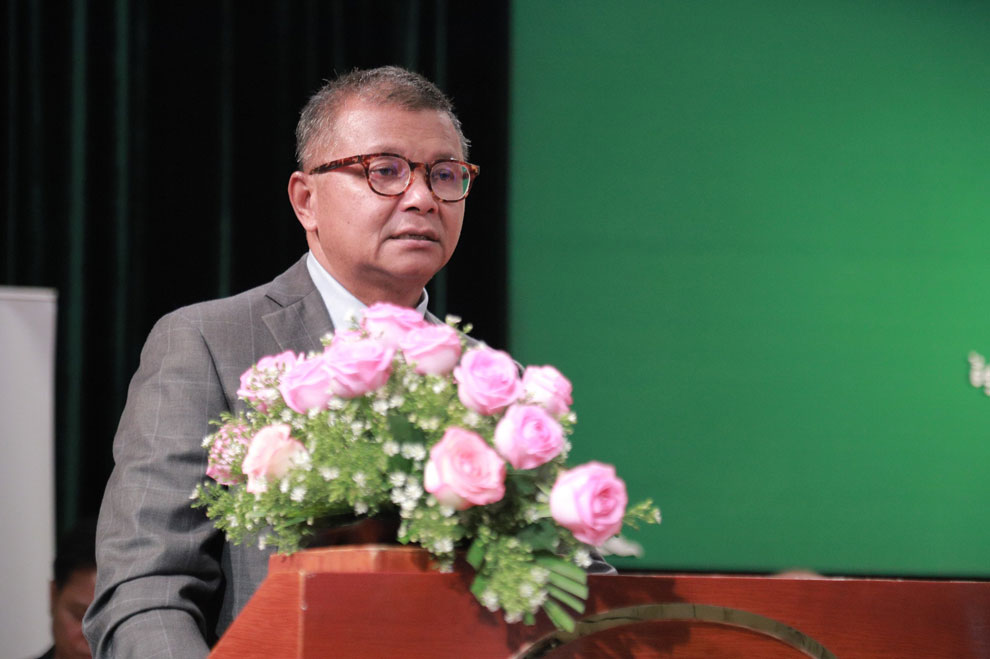
Hang Chuon Naron addressed a June 27 workshop which outlined precautionary measures and support services for both communicable and non-communicable diseases among employees in the educational sector. MoEY
Improving the mental wellbeing of educational staff and protecting their mental health, while providing them with necessary care and treatment, is a priority, said Hang Chuon Naron, Minister of Education, Youth and Sport.
Chuon Naron addressed a June 27 workshop which outlined precautionary measures and support services for both communicable and non-communicable diseases among employees in the educational sector, said the education ministry.
“Cambodia has been steadily strengthening and expanding mental health service provision across the country. Demand for these services is increasing, however. Ensuring the mental health and well-being of all educational staff requires the participation of all of us,” he said.
He added that many people suffered from mental stress in their lives, whether it was related to relations between individuals, family members of their wider communities or and society. The WHO estimated that 10 to 20 per cent of the world’s young people suffered from mental illness, half of whom began to develop psychological problems at the age of 14.
“The consequences of failing to cope with these psychological problems may result in mental or physical problems that may affect them later in life,” he continued.
He warned that untreated psychological problems could affect the whole educational community, including students, teachers, staff and others, so timely intervention is the most important task.
The minister said the education ministry has laid out the Cambodia’s Education 2030 Roadmap, as well as the Master Plan on Health Promotion, and the Education and Strategic Plan. The ministry has also developed principles of psychological first aid (PFA) for educational staff to offer further support for them.
Yim Sobotra, a psychiatrist at Sunrise Clinic, said on June 27 that there are four ways of helping to manage mental health, known as the “Four As”. They include Acting on your issue, Adapting to your issue, Avoiding taking on the problems of others, and Accepting their issue.
“Mental health problems have mild, moderate and serous levels. Mild cases can often be resolved without medication, while moderate cases generally require medication,” he explained.
“The majority of the Cambodian public do not have a firm understanding of how to cope with mental health issues, or of the concept of counselling without medication. Counselling may not always pay off, but it generally achieves positive results in most mild and moderate cases,” he added.
He encouraged anyone who felt they were undergoing a mental health crisis to seek treatment, saying that they should not feel shame of think they are alone. He also recommended that families pay closer attention to the mental well-being of its members.
A UNICEF Cambodia study found that in 2021, about 16 per cent of Cambodian youth had suffered from bouts of depression. According to a study of socio-economic impacts by UNICEF Cambodia and its partners, 45 per cent of Cambodian youth who participated in the survey were concerned about their safety during the Covid-19 pandemic and 16 per cent had suffered from anxiety or depression at the onset of the pandemic.








